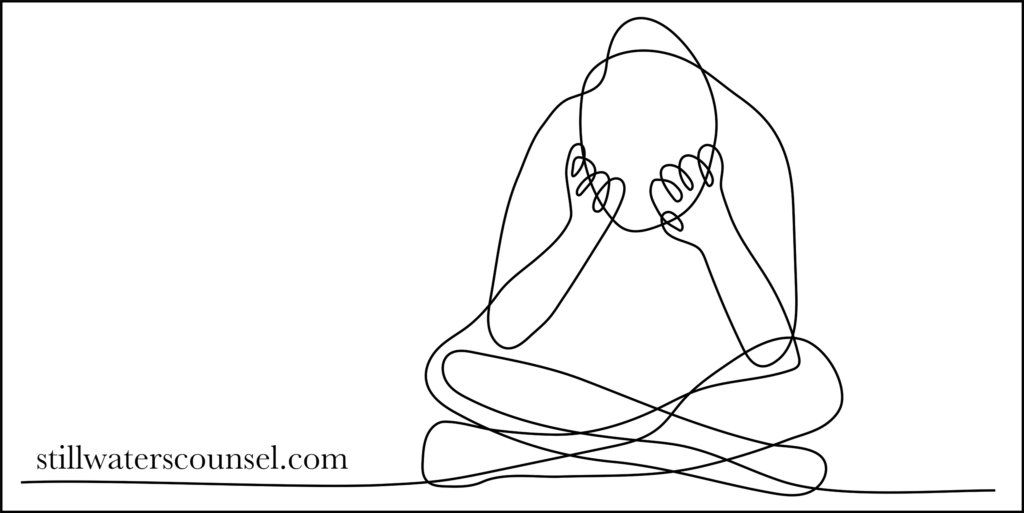Depression is, unfortunately, terribly common, affecting millions of folks worldwide. Characterized by persistent feelings of sadness, hopelessness, and loss of interest in daily activities, depression makes even the simplest of tasks potentially overwhelmingly impossible. Other common symptoms include difficulty sleeping or over-sleeping, low motivation, weight changes (due to changes in appetite), fatigue, and feelings of guilt. While therapy and lifestyle changes certainly can help manage depression, sometimes medication is warranted (see this post for more about deciding when it’s time to try out medication).

In this blog post, we’ll discuss the most common types of medication used to treat depression. It’s worth noting that in addition to the mechanisms described below, many antidepressant medications also increase a chemical in the brain called brain derived neurotrophic factor (BDNF), which tends to be lower in folks who experience depression. BDNF is a crucial for brain health over the lifespan. It acts as a sort of nanny to brain cells, making sure everyone has what they need to grow big and strong and do their job. So, while meds sometimes get a bad rap, they can truly help heal the brain over time, when used in the right way at the right time.
1. Selective Serotonin Reuptake Inhibitors (SSRIs)
SSRIs are one of the oldest and most commonly prescribed type of antidepressant medication. Serotonin is released from one neuron (presynaptic) into a space (synapse). At the other end of the space is another neuron (post-synaptic). Neurotransmitters are endlessly shuttling from presynaptic to post synaptic neurons – and this is in part (in an exceptionally oversimplified way) how emotions happen. Now, as the name suggests, this class of meds works by blocking the reuptake of serotonin into that presynaptic neuron. Which means there’s more of it floating around, which means it can do its job, making you feel, well, better. Yay! Examples of SSRIs include fluoxetine (Prozac), sertraline (Zoloft), and escitalopram (Lexapro).
2. Serotonin-Norepinephrine Reuptake Inhibitors (SNRIs)
Just like SSRIs, SNRIs also inhibit reuptake of serotonin. But they have the additional benefit of also inhibiting reuptake of norepinephrine, a key chemical when it comes to being able to be awake, aware, and able to cognitively tackle the day. Examples of SNRIs include venlafaxine (Effexor) and duloxetine (Cymbalta).
3. Tricyclic Antidepressants (TCAs)
TCAs are an older type of antidepressant medication that are not as commonly prescribed today, mostly because they have the potential to cause a whole bunch of side effects. Nevertheless, they are sometimes used, and function similarly to the SNRIs, in that they increase the levels of serotonin and norepinephrine in the brain. Examples of TCAs include amitriptyline (Elavil) and imipramine (Tofranil).
4. Monoamine Oxidase Inhibitors (MAOIs)
MAOIs are another older type of antidepressant medication, also not as commonly prescribed today due to their potential side effects and interactions with not only other medications, but also foods. Monoamine oxidase is an enzyme in the brain that breaks down monoamines: serotonin, norepinephrine, and dopamine. Inhibiting this enzyme, therefore means that breakdown of these neurotransmitters doesn’t happen as quickly, leaving more of them floating around in the brain. (Fun fact/sidenote: estrogen also inhibits monoamine oxidase, part of why women experience differing symptoms throughout their menstrual cycles as their hormone levels fluctuate.) Examples of MAOIs include phenelzine (Nardil) and tranylcypromine (Parnate).
5. Atypical Antidepressants
Atypical antidepressants are a newer class of antidepressant medication that work in various ways to regulate mood. Examples of atypical antidepressants include bupropion (Wellbutrin) and mirtazapine (Remeron). We don’t understand fully how/why these medications work, but they can nevertheless be incredibly effective.
It’s important to note that antidepressant medications must be taken daily, and it can take at least 2 weeks to experience an effect. They can also cause side effects such as nausea, insomnia, and sexual dysfunction. Strategies are available to minimize side effects and maximize effectiveness of these medications.
If you are struggling with depression and low mood, email info@stillwaterscounsel.com to schedule an appointment with Dr Katherine!
